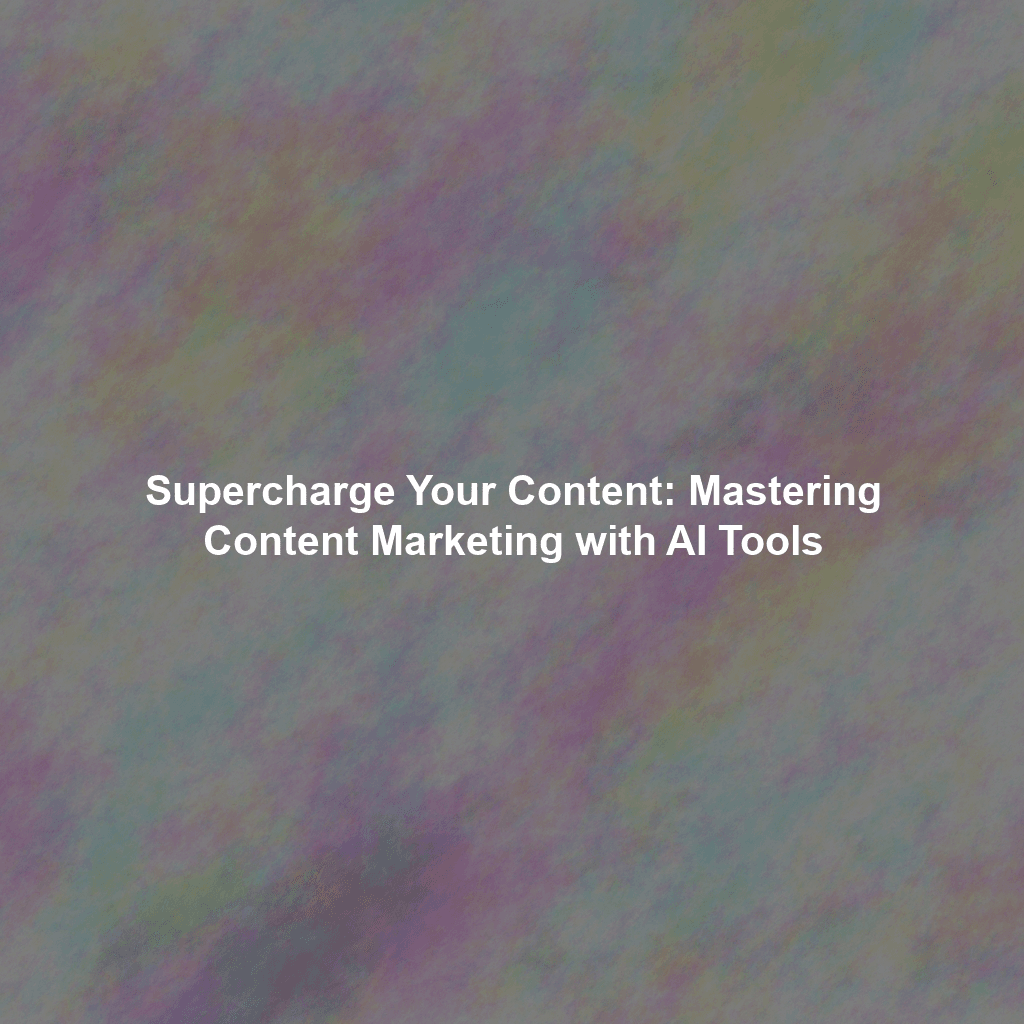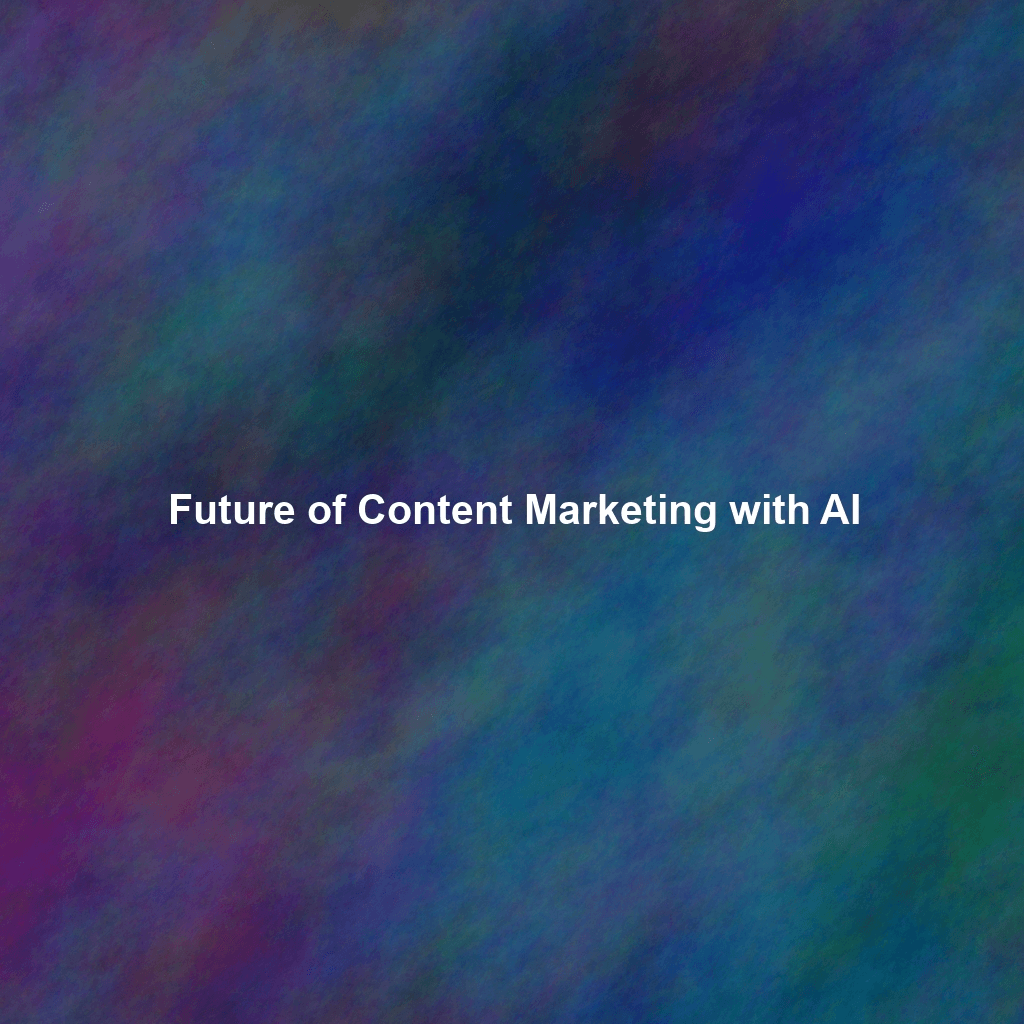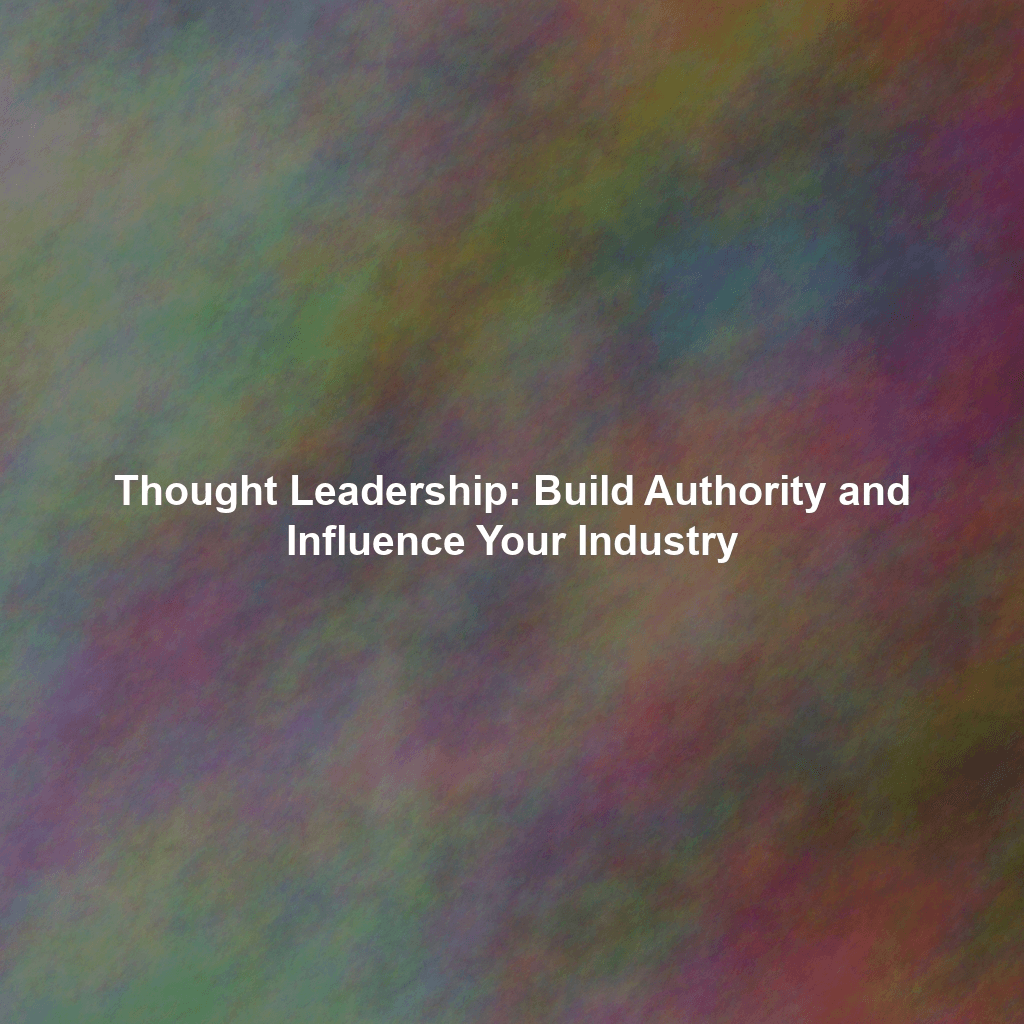Content marketing has evolved. No longer is it solely about crafting compelling narratives; it’s about leveraging data, efficiency, and personalization at scale. Artificial intelligence (AI) is no longer a futuristic concept but a present-day reality, transforming how content is created, distributed, and analyzed. This article delves into the powerful intersection of content marketing and AI tools, providing a comprehensive guide for marketing professionals, content creators, and business owners looking to gain a competitive edge.
In today’s digital landscape, standing out from the noise requires more than just good writing. It demands strategic planning, data-driven insights, and the ability to adapt quickly to changing trends. AI empowers marketers to achieve all this and more, unlocking new levels of efficiency, personalization, and ultimately, ROI.
Understanding the Landscape: Types of AI Tools for Content Marketing
The AI toolkit for content marketing is vast and varied. Understanding the different categories of tools and their specific applications is crucial for selecting the right solutions for your needs. Here’s a breakdown of some key types:
1. AI-Powered Content Generators
These tools leverage natural language processing (NLP) and machine learning (ML) to generate various content formats, from blog posts and articles to social media updates and website copy. While not intended to replace human creativity entirely, they can significantly accelerate the content creation process, especially for routine tasks.
Examples: Jasper, Copy.ai, Rytr, Content Hurricane
2. AI-Driven SEO Tools
Search engine optimization (SEO) is the backbone of organic content marketing. AI-powered SEO tools analyze vast amounts of data to identify relevant keywords, optimize content for search engines, track rankings, and analyze competitor strategies. They provide actionable insights that help improve visibility and drive organic traffic.
Examples: Surfer SEO, Semrush, Ahrefs (with AI features), Scalenut
3. AI-Based Content Optimization Tools
These tools focus on improving the quality and effectiveness of existing content. They analyze factors such as readability, grammar, tone, and relevance, providing suggestions for optimization. This ensures your content is engaging, informative, and aligned with your target audience’s preferences.
Examples: Grammarly, Hemingway Editor, MarketMuse
4. AI-Enabled Content Personalization Platforms
Personalization is key to delivering relevant and engaging experiences. AI-enabled platforms analyze user data, such as demographics, behavior, and preferences, to personalize content recommendations, website experiences, and marketing messages. This leads to increased engagement, conversions, and customer loyalty.
Examples: Optimizely, Evergage (now Salesforce Interaction Studio), Dynamic Yield (now McDonald’s acquired it)
5. AI-Powered Social Media Management Tools
Social media is a crucial channel for content distribution and engagement. AI-powered social media management tools automate tasks such as scheduling posts, identifying trending topics, analyzing sentiment, and engaging with followers. This frees up time for marketers to focus on strategic initiatives and building relationships.
Examples: Hootsuite, Buffer, Sprout Social
6. AI-Driven Analytics and Reporting Tools
Measuring the effectiveness of your content marketing efforts is essential for continuous improvement. AI-driven analytics tools provide advanced insights into content performance, user behavior, and ROI. They identify trends, patterns, and opportunities that would be difficult to uncover manually.
Examples: Google Analytics (with AI features), Adobe Analytics, Mixpanel
Benefits of Using AI in Content Marketing
Integrating AI into your content marketing strategy offers a multitude of benefits:
- Increased Efficiency: Automate repetitive tasks and streamline workflows, freeing up time for strategic initiatives.
- Improved Content Quality: Enhance readability, grammar, and relevance, ensuring your content is engaging and informative.
- Enhanced Personalization: Deliver tailored experiences that resonate with your target audience, leading to increased engagement and conversions.
- Data-Driven Insights: Gain a deeper understanding of your audience, content performance, and market trends, enabling data-driven decision-making.
- Improved SEO Performance: Optimize content for search engines and improve organic visibility, driving more traffic to your website.
- Cost Savings: Reduce labor costs and optimize resource allocation, leading to a higher return on investment.
- Scale Content Production: Produce more content, faster, without sacrificing quality, to meet the demands of a content-hungry audience.
Implementing AI in Your Content Marketing Strategy: A Step-by-Step Guide
Successfully integrating AI into your content marketing strategy requires a structured approach:
1. Define Your Goals and Objectives
Clearly define what you want to achieve with AI. Are you looking to increase efficiency, improve content quality, enhance personalization, or drive more traffic? Having clear goals will help you select the right tools and measure your success.
2. Assess Your Current Content Marketing Processes
Identify areas where AI can have the biggest impact. Analyze your current workflows and identify bottlenecks or inefficiencies that can be addressed with AI-powered solutions.
3. Select the Right AI Tools
Choose tools that align with your goals and objectives. Consider factors such as budget, ease of use, and integration with your existing marketing stack. Start with a few key tools and gradually expand your AI toolkit as needed.
4. Train Your Team
Provide your team with the necessary training to use the AI tools effectively. Ensure they understand the capabilities of each tool and how to integrate them into their workflows. Emphasize that AI is a tool to augment, not replace, human creativity and expertise.
5. Experiment and Iterate
Don’t be afraid to experiment with different AI tools and techniques. Track your results and make adjustments as needed. Continuously iterate on your AI strategy to optimize performance and achieve your goals.
6. Monitor and Measure Results
Track key metrics such as website traffic, engagement, conversions, and ROI to measure the effectiveness of your AI initiatives. Use this data to identify areas for improvement and optimize your strategy over time.
Challenges and Considerations
While AI offers significant benefits, it’s important to be aware of the challenges and considerations:
- Data Privacy and Security: Ensure you are handling user data responsibly and complying with all relevant privacy regulations.
- Bias and Fairness: Be aware of potential biases in AI algorithms and take steps to mitigate them.
- Ethical Considerations: Use AI responsibly and ethically, avoiding practices that could be harmful or misleading.
- Over-Reliance on AI: Remember that AI is a tool to augment, not replace, human creativity and expertise.
- Keeping Up with Technology: The AI landscape is constantly evolving. Stay informed about the latest trends and technologies to ensure you are using the most effective solutions.
- Cost of Implementation: Some AI tools can be expensive. Carefully consider the cost-benefit ratio before investing.
The Future of Content Marketing with AI
The future of content marketing is inextricably linked to AI. As AI technology continues to evolve, we can expect to see even more sophisticated and powerful tools emerge, transforming how content is created, distributed, and consumed.
Here are some key trends to watch:
- Hyper-Personalization: AI will enable marketers to deliver truly personalized experiences at scale, tailoring content to the individual needs and preferences of each user.
- AI-Powered Content Creation: AI will play an increasingly important role in content creation, generating everything from blog posts and articles to videos and podcasts.
- Predictive Content Marketing: AI will enable marketers to predict which content will resonate with their audience, allowing them to create more effective and targeted campaigns.
- Voice Search Optimization: As voice search becomes more prevalent, AI will be crucial for optimizing content for voice-based queries.
- AI-Driven Content Distribution: AI will automate the process of distributing content across various channels, ensuring it reaches the right audience at the right time.
Conclusion: Embracing the AI-Powered Content Marketing Revolution
AI is transforming the content marketing landscape, offering marketers unprecedented opportunities to improve efficiency, enhance personalization, and drive results. By embracing AI and integrating it strategically into your content marketing strategy, you can gain a competitive edge and achieve your business goals.
The key is to approach AI as a tool to augment, not replace, human creativity and expertise. By combining the power of AI with the creativity and strategic thinking of human marketers, you can unlock new levels of success and create truly engaging and impactful content experiences. As AI evolves, continuous learning and adaptation are essential for content marketers to stay ahead of the curve and leverage the full potential of this transformative technology.
 Skip to content
Skip to content

